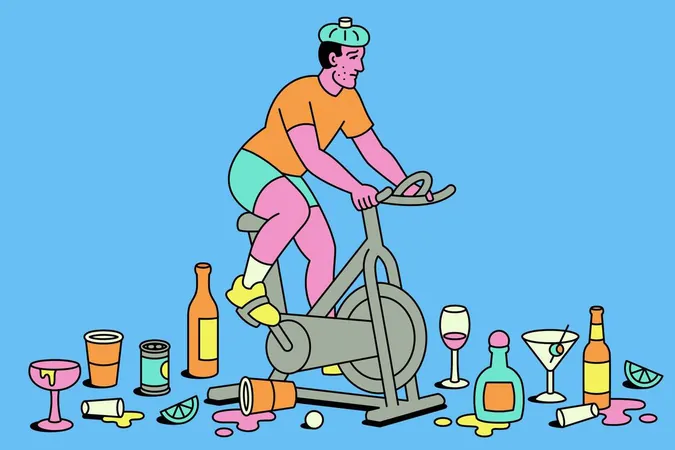
The Alarming Health Risks of Holding Your Pee: Experts Weigh In
2024-12-15
Author: John Tan
It's all too common: you're stuck in an important meeting or enjoying a movie, and your bladder is sending urgent signals. You may think it’s reasonable to hold on just a little longer, but experts warn that this seemingly harmless habit can lead to serious health issues.
The Risks of Ignoring Urges
According to Dr. Jason Kim, a clinical associate professor of urology at Stony Brook University, ignoring your body's natural urges can have dire consequences, especially if this behavior becomes habitual. Your bladder has a normal capacity of about 400 to 600 cubic centimeters, and when it reaches about half that, nerve receptors signal your brain that it’s time to relieve yourself. However, societal norms often lead us to suppress those urges, which can have negative health implications.
Urination and Bacterial Growth
Dr. Kim explains that urination involves a complex neurological system. While the kidneys produce urine, it travels through tubes known as ureters into the bladder. When we fail to respond to the urge to urinate, we're not just uncomfortable—we're allowing urine to linger, creating an environment that may foster bacterial growth, ultimately increasing our risk of urinary tract infections (UTIs).
Women's Health Concerns
Dr. Jamin Brahmbhatt, a urologist at Orlando Health, underscores the risks associated with holding pee, especially for women. Post-sex urination is advisable for flushing out bacteria that might enter the urinary tract during intercourse. Ignoring the urge can lead to UTIs, which, if untreated, may escalate to kidney infections or even systemic infections like urosepsis.
Muscle Weakness and Complications
Moreover, holding urine can weaken the bladder muscles over time, complicating future bathroom trips. “This can create a vicious cycle,” says Brahmbhatt. “If you don’t empty the bladder completely, you’re left with stagnant urine, heightening your infection risk.”
At-Risk Populations
The dangers are even more pronounced for specific groups. Older adults, those with neurogenic bladder conditions, and pregnant women should practice extra caution, as they are more prone to urinary issues. Aging can lead to prostate enlargement in men and urethral tightening in women, complicating urination. Pregnant women should particularly heed their body’s signals, given the added pressure on their bladders.
Overcoming Fears of Public Restrooms
Curiously, some individuals may find themselves delaying bathroom visits due to a fear of public restrooms. Dr. Brahmbhatt encourages those who are uncomfortable with these facilities to prepare better: “Carry disinfecting wipes or a portable seat cover, but don’t risk your health by holding it in.”
Frequency of Urination
How often is too often to hold your pee? While occasional restraint may not lead to immediate damage, regular postponement of bathroom trips over weeks or months can significantly strain both your bladder and kidneys. If you find yourself making frequent trips to the restroom or struggling to urinate, it could signal underlying conditions such as overactive bladder syndrome or diabetes, and you should consult a urologist for guidance.
Conclusion
In conclusion, heeding our body's cues is crucial. Holding your pee might seem like a small sacrifice for convenience, but the potential health risks—from simple discomfort to serious infections and kidney damage—are too significant to ignore. Respect your body's needs for optimal health and well-being!




 Brasil (PT)
Brasil (PT)
 Canada (EN)
Canada (EN)
 Chile (ES)
Chile (ES)
 España (ES)
España (ES)
 France (FR)
France (FR)
 Hong Kong (EN)
Hong Kong (EN)
 Italia (IT)
Italia (IT)
 日本 (JA)
日本 (JA)
 Magyarország (HU)
Magyarország (HU)
 Norge (NO)
Norge (NO)
 Polska (PL)
Polska (PL)
 Schweiz (DE)
Schweiz (DE)
 Singapore (EN)
Singapore (EN)
 Sverige (SV)
Sverige (SV)
 Suomi (FI)
Suomi (FI)
 Türkiye (TR)
Türkiye (TR)